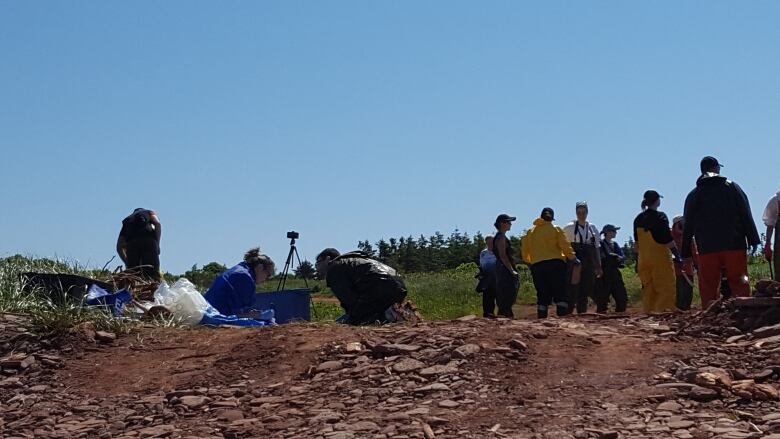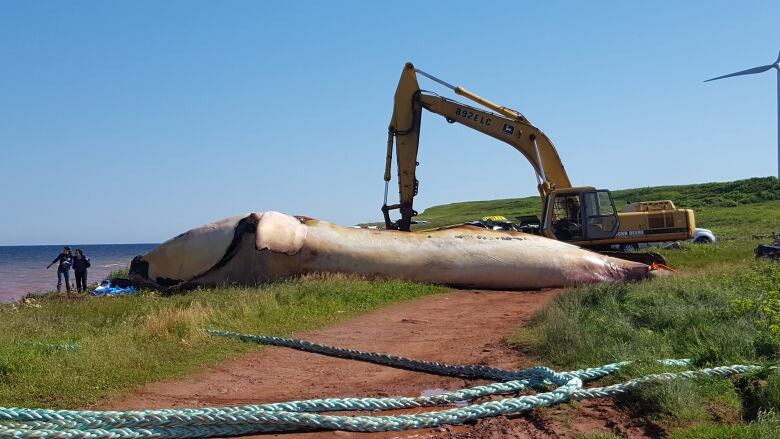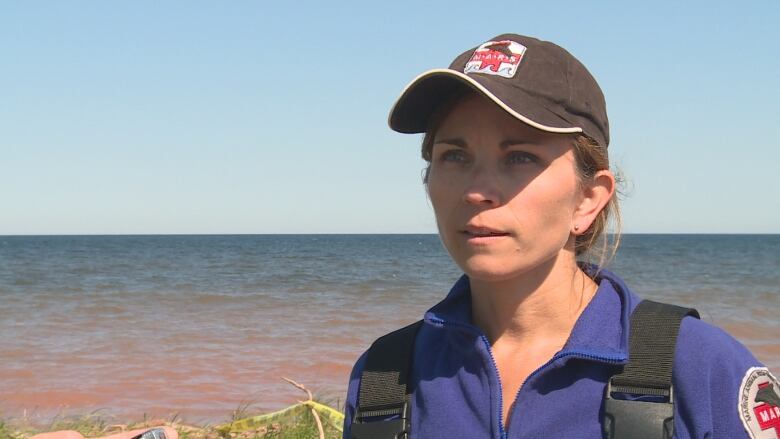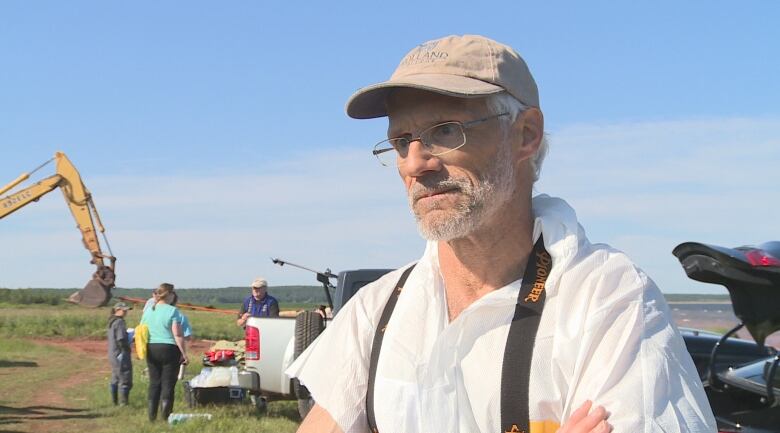Right whale necropsy underway on P.E.I., 2 more possible
WARNING This story contains images some may find disturbing

Fisheries and Oceans Canada is working with a half dozen agencies to determine why at least six endangered right whales died recently in the Gulf of St. Lawrence.
The whales were found floating near les-de-la-Madeleine, the first on June 6.

Operations began to bringthe first whale to the shore near Norway, in the far west of P.E.I. Wednesday. Another whale is being towed to the site, and officials hope to bring in a third.
On Thursday morning one whale was hauled off the beach onto land, and a necropsy is underway.

'Largest die-off'
Tonya Wimmer, the director of the Marine Animal Response Society, said that toxic algae, an infectious disease, fishing gear entanglements or boat strikesare somepossible reasons for the deaths.
She said that finding the cause of death is important so action can be taken to mitigate risks of future incidents.
"If it is something that's human related, you know, something that we can control, then we absolutely have to know that so we can do that. So we can reduce the risk," Wimmersaid.

Right whales are one of the most studied large whales according to Wimmer, and there are only about 525 left.
"There's so few of them that are left on the planet," she said.

Six dying in this short a period of time is alarming to researchers.
"This is actually the largest die-off of right whales in North America," said Wimmer.
"We've never had an incident bigger than this."
Challenges ahead
Pierre-YvesDaoust, wildlife pathologist on faculty atCharlottetown's Atlantic Veterinary College, said that the necropsy will take at least two days, and is a difficult task.
The blubber of right whales is "particularly thick" according to Daoust, and that makes dissecting the animal a long task.

"The next big challenge would be the head," he said.
"The head is one big mass of bone and therefore it is challenging."
Humanity depends on the oceans'
Daoust said that finding a cause of death is not a foregone conclusion.
"It has happened more than once that we have done all this work, we have not found any cause of death," he said.
"The best outcome is that eventually we'll find something."

He also said that an event like this die-off should be recognized for its importance.
"The ocean is very precious. When something like this happens, when we don't know what caused a mortality we have to worry," said Daoust.
"In the ocean everything occurs below the surface, what you don't see, you don't worry about, and yet our whole humanity depends on the oceans."
"When we see something like this it is extremely important that we try and understand as best as we can what might have happened, hoping that it will raise our consciousness."
Fisheries and Oceans has called in experts from across Canada and the U.S. to help.
- Canadian Wildlife Health Cooperative at the Atlantic Veterinary College
- Marine Animal Response Society
- University of North Carolina Wilmington
- Universit de Montral
- Marine Mammal Commission
- Provincial government of British Columbia
The public is being asked to keep clear of the site to allow the scientists to do their work.

- MORE P.E.I. NEWS |Prime minister making P.E.I. visit on Thursday
- MORE P.E.I. NEWS |'I've never seen such blatant aggressiveness': Panhandlers upset P.E.I. visitor
With files from Island Morning and Nicole Williams












_(720p).jpg)


 OFFICIAL HD MUSIC VIDEO.jpg)
.jpg)



























































































